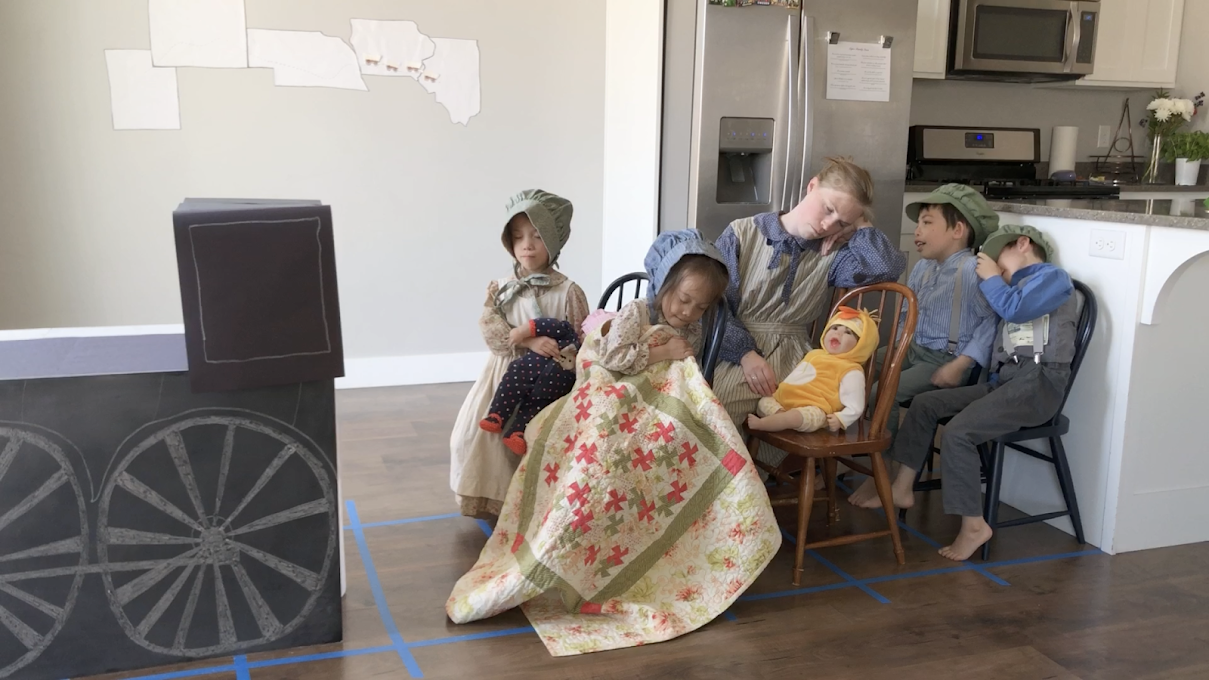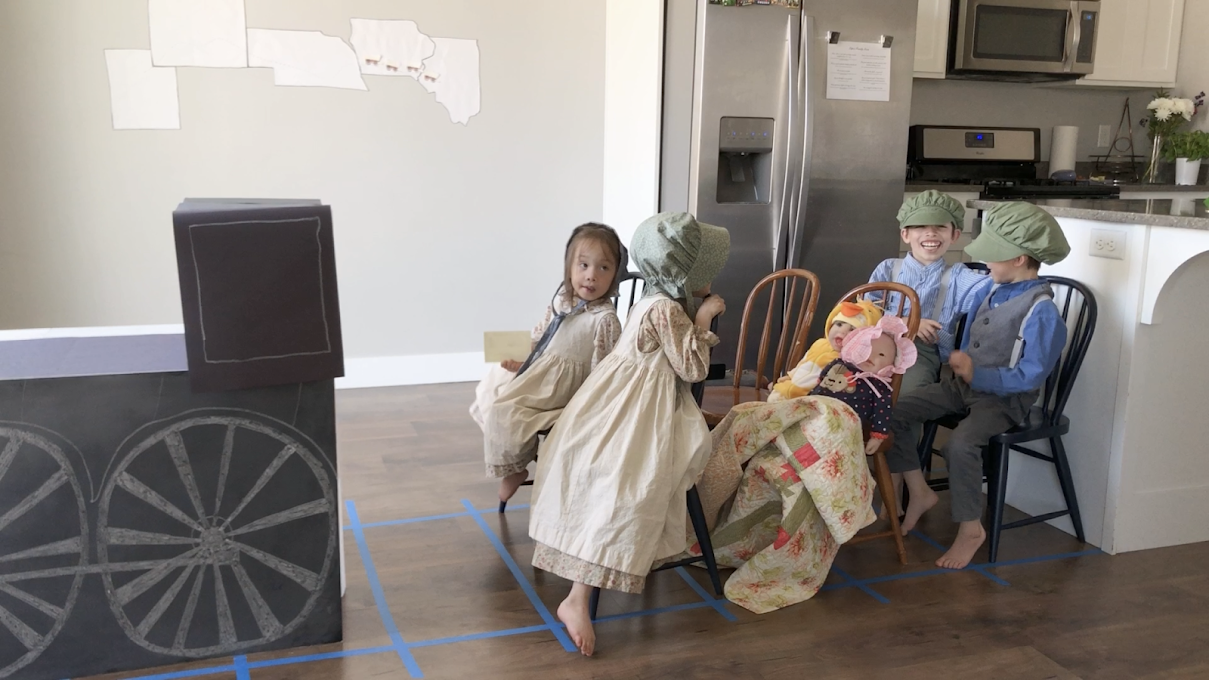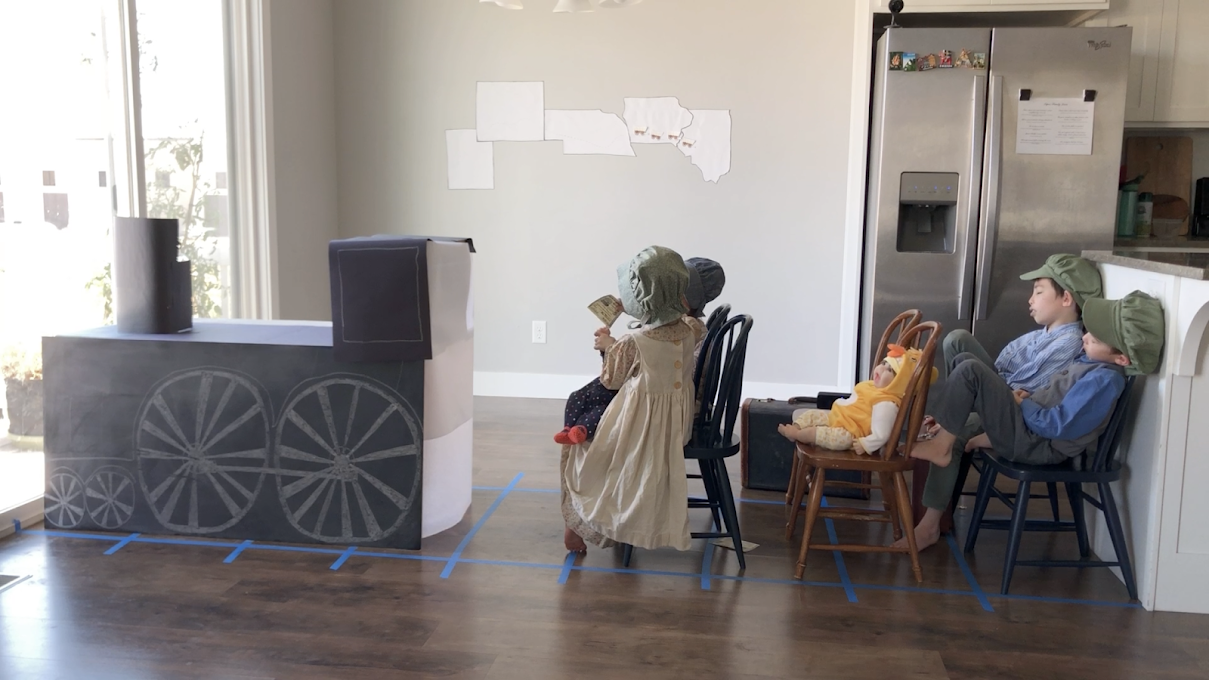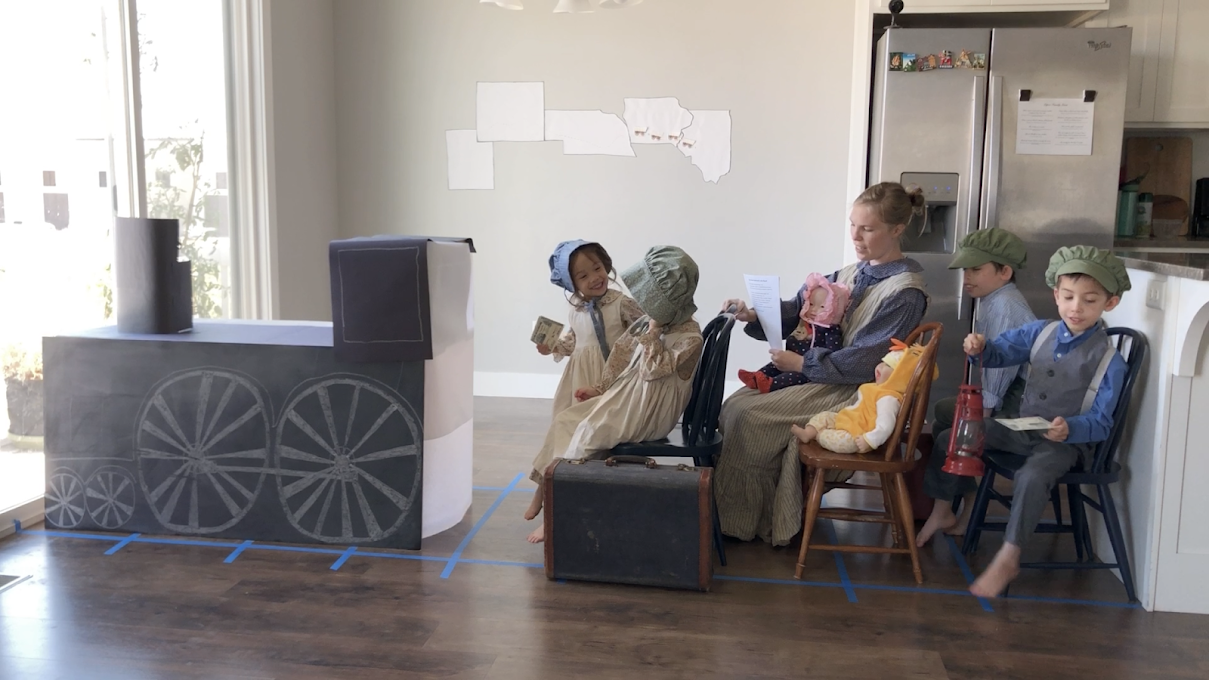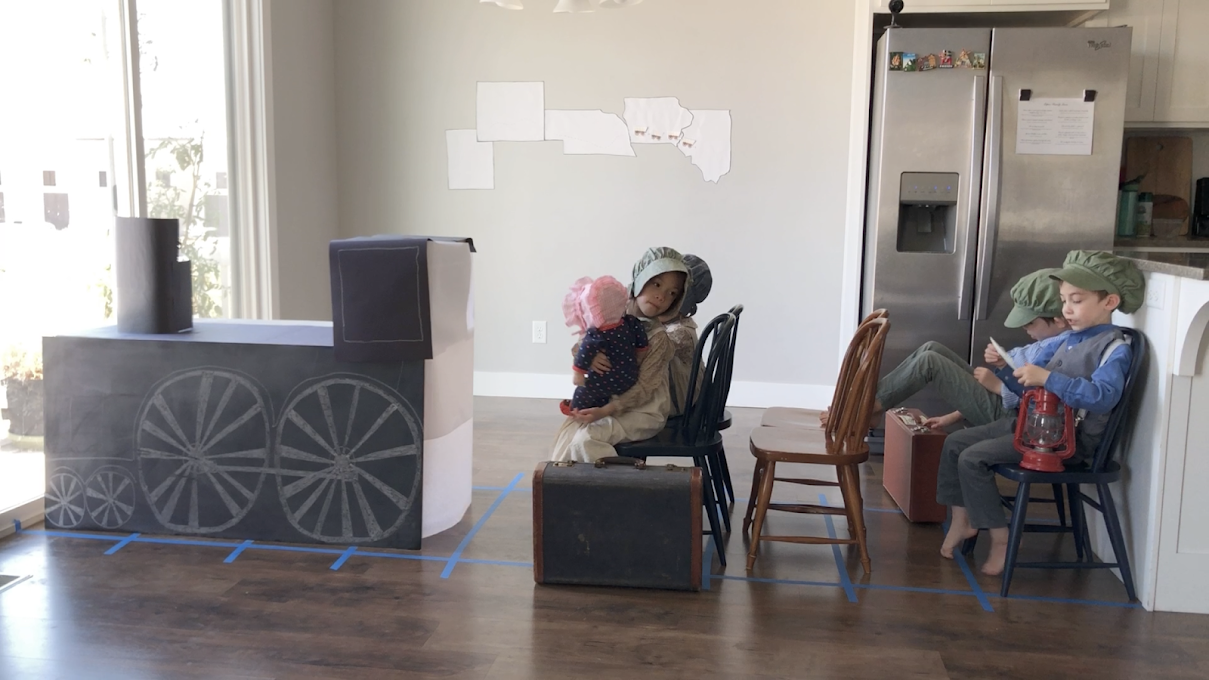Today, we went on a train ride. Last week, we completed the first leg of Cecelia’s journey from Bornholm, Denmark to Utah. And today, we next leg of her journey… a train ride from Philadelphia, Pennsylvania to Iowa City, Iowa.
Upon reaching Philadelphia, Pennsylvania, they were met by Elder Angus M. Cannon who made arrangements for them to proceed on their journey.
The 2nd of June at 2 pm the Saints were loaded onto trains. Each adult paid $10.50; the ones age 6 to 14 paid half price, and under 6 rode free. They traveled by way of Baltimore, Maryland and Wheeling, West Virginia and arrived at Iowa City on the 9th of June.
The train trip was very difficult. There was much sickness in the crowed cars. The train cars had no comforts, no upholstered seats, and no water.
Every time the train would stop they would get off and fill everything they could from the railroad tanks. One brother Gems Anderson and 3 children died in the crowded cars. The loaded trains took the Saints to the end of the Rock Island line and dumped them at Iowa City.
Here is another account of their train journey, from some other members of their traveling company…
The arrival in Philadelphia must have been a great relief to those who had been seasick for the better part of five weeks during the ocean crossing. For example, John Dorius’ brief comment was no doubt, felt by all those on board:
“Monday, June 1. We had the privilege to step upon the land of America the first time, but we returned to the ship to spend the night.”
Entering anew their native one presented some problems for the saints, however.
“In Philadelphia it was awkward for us to do our trading because we could not speak English, but we bought a number of things. I got a new suit of clothes.”
After a day in Philadelphia, the Saints boarded a train to the west, arriving at the western terminus of the railroad, Iowa City, on the 9th of July. John Dorius recorded his impressions of America on this train trip:
“Tuesday, June 2. In the afternoon the whole company left Philadelphia traveling by rail. We traveled eight days and nights, a distance of about 1500 miles to Iowa City, we passed thru many towns and places, and it was certainly enjoyable to ride through this beautiful country, which exhibited fertility and blessings, conveying the idea to us that it was a land blessed by the Lord.”
Anna Christina Jensen McRae was not all that impressed, however. She recorded some of the problems encountered:
“Our journey on the train was not all pleasure. Sometimes we had to change cars in the night and had to walk a distance to meet the next train. The sick were unable to walk, it took two men to help a patient along. All this was in darkness for we had no lights. I heard say while they were leading a very old gentleman that he dropped dead in his tracks.
One evening we were turned out of the car to wait till the next day for another train. We sat in front of a large building but no doors were opened. Some sat under their umbrellas. My folks got under some trussed-work for shelter.
I sat with my baby sister in my lap all night, while the rain and mud ran down on us from the hill. In the morning we looked as if we had layed in a mud hole. I had to wash all of our shoes. Next morning the door of some building was thrown open for us to come in. I think it was a freight office as there was nothing in it except a little straw and some rough goods.
We went to some eating house for our breakfast, some food was carried to the sick. I saw a young man bring a cup of soup and sit down on the floor to feed a young woman who was lying sick on a little bit of straw. I sat and watched this young man and thought he was a good man. Later I found out she was his sweetheart.
Some of our family were sick and had to occupy a whole seat on the train, while others lay on the floor. One night I had to stand up, I hardly had room to lean against the window. Sometimes we had a rough car. We were always glad to get off the train. One was said to be a cattle car.”


